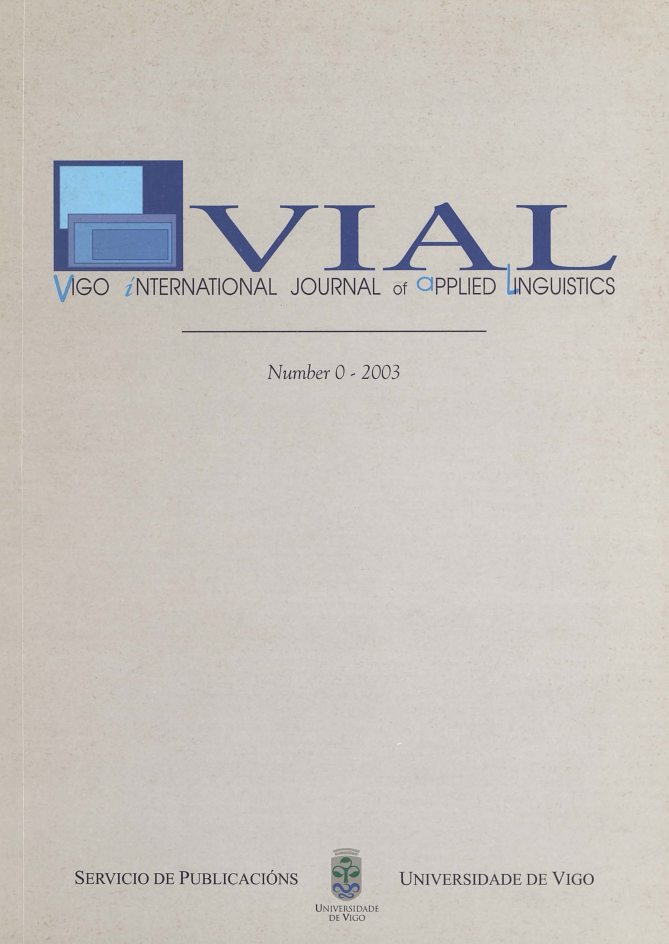Dead or To Death? On Translating into Spanish the Semantico-Pragmatic Implications Derived from the English Resultative Construction
DOI:
https://doi.org/10.35869/vial.v0i0.3870Abstract
The almost complete non-existence in Spanish of the remarkably productive English resultative construction with dead/to death, together with the semantico-pragmatic connotations entailed by the choice of each of these two attributes, bring to the fore in the present paper a syntactic and semanticopragmatic contrastive analysis of this peculiar structure. Our objective is twofold: (a) to prove that both attributes are in complementary distribution and cannot -be, consequently, systematically interchanged: specifically, that the adjectival alternative is required when the verb it complements ensures "death" outside the resultative pattern and that its prepositional counterpart is chosen, in tum, when "death" is not guaranteed by the semantics of the verbal constituent; and (b) to explain how the aforementioned pragmatic contrast is translated into Spanish: whereas in English such a pragmatic contrast is formally encoded, in Spanish it is morphologically expressed through singular/plural number in the translation of the English verb.
Downloads
Downloads
Published
Issue
Section
License
Revistas_UVigo es el portal de publicación en acceso abierto de las revistas de la Universidade de Vigo. La puesta a disposición y comunicación pública de las obras en el portal se efectúa bajo licencias Creative Commons (CC).
Para cuestiones de responsabilidades, propiedad intelectual y protección de datos consulte el aviso legal de la Universidade de Vigo.



